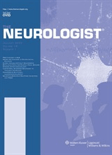
Multiple Sclerosis and Related Disorders
Scope & Guideline
Connecting researchers and practitioners in neurology.
Introduction
Aims and Scopes
- Clinical and Epidemiological Research:
The journal emphasizes studies that explore the clinical characteristics, epidemiology, and natural history of multiple sclerosis, providing valuable insights into the disease's progression and factors influencing its course. - Therapeutic Advances and Treatment Protocols:
It covers research on the efficacy and safety of disease-modifying therapies (DMTs) and other treatment modalities, including novel therapies, their impact on quality of life, and management strategies for MS and related disorders. - Neuroimmunology and Pathophysiology:
Research on the underlying immunological mechanisms and neurobiological changes associated with MS is a key focus, aiming to enhance understanding of disease mechanisms and identify potential therapeutic targets. - Patient-Reported Outcomes and Quality of Life:
The journal prioritizes studies that assess patient-reported outcomes, including quality of life, mental health, and the psychosocial impacts of living with MS, emphasizing a holistic approach to patient care. - Innovative Diagnostic Techniques:
Research exploring advanced diagnostic tools and biomarkers for MS, including imaging techniques and laboratory assays, is highlighted to improve diagnostic accuracy and patient stratification. - Multidisciplinary Approaches to Care:
The journal promotes studies that investigate the effectiveness of multidisciplinary care models, including rehabilitation, physical therapy, and psychological support for MS patients.
Trending and Emerging
- Impact of COVID-19 on MS Patients:
Research exploring the effects of COVID-19 on MS patients, including vaccine responses and disease management during the pandemic, has surged, reflecting the urgency of understanding this intersection. - Telemedicine and Remote Care Models:
There is a growing emphasis on studies evaluating telehealth interventions and their effectiveness in managing MS, driven by the need for accessible care during the pandemic. - Neuropsychological and Cognitive Function Studies:
Increased attention is being given to the assessment and management of cognitive impairment in MS patients, focusing on innovative interventions and understanding the neuropsychological aspects of the disease. - Patient-Centered Care and Shared Decision-Making:
Research highlighting the importance of patient perspectives, shared decision-making, and personalized care approaches is gaining traction, indicating a shift towards more holistic and inclusive treatment strategies. - Biomarkers and Predictive Modeling:
Emerging studies focusing on biomarkers, such as neurofilament light chains, and their role in predicting disease progression and treatment response are trending, reflecting advancements in precision medicine. - Lifestyle Interventions and Holistic Approaches:
There is an upward trend in research examining the impact of lifestyle factors, including diet and exercise, on MS symptom management and overall health outcomes, emphasizing a comprehensive approach to care.
Declining or Waning
- Basic Science Research:
There appears to be a declining focus on basic science studies that explore fundamental biological mechanisms of MS, as the journal increasingly prioritizes clinical and translational research. - Historical Epidemiological Studies:
Research focusing solely on historical epidemiological trends without contemporary relevance may be waning, as the journal shifts towards studies that provide actionable insights for current clinical practice. - Single-Disorder Focus:
There is a noticeable reduction in publications that focus exclusively on multiple sclerosis, with a growing trend towards comparative studies involving related disorders, such as neuromyelitis optica spectrum disorders. - Pharmacovigilance Studies without Clinical Implications:
Studies that examine adverse drug reactions in isolation, without linking findings to clinical outcomes or treatment strategies, have become less common.
Similar Journals

NEUROLOGIC CLINICS
Exploring innovative solutions for neurological disorders.NEUROLOGIC CLINICS, published by W B SAUNDERS CO-ELSEVIER INC, stands as a leading journal in the field of clinical neurology, boasting an impressive impact factor that reflects its significant contributions to neurological research and clinical practice. With an ISSN of 0733-8619 and E-ISSN of 1557-9875, this journal provides a critical platform for the dissemination of innovative research, case studies, and reviews focusing on various aspects of neurology, from diagnosis to treatment interventions. As part of its commitment to advancing the understanding of neurological disorders, NEUROLOGIC CLINICS is categorized in the Q2 quartile for Neurology (clinical) in 2023, indicating its robust standing within the academic community. It is recognized for its rigorous peer-review process and is indexed in Scopus, ranking #147 out of 400 in its field with a notable 63rd percentile. The journal, which dates back to 1983 and continues to publish vital findings up to 2024, is an invaluable resource for researchers, healthcare professionals, and students dedicated to enhancing their knowledge and clinical skills in neurology. Subscribe now to stay abreast of current advancements and expand your expertise in this dynamic field.

Neurodegenerative Disease Management
Unlocking New Frontiers in Disease ManagementNeurodegenerative Disease Management is a distinguished journal published by FUTURE MEDICINE LTD, focusing on the pivotal issues surrounding the management of neurodegenerative diseases. Since its inception in 2014, this journal has emerged as a significant resource within the fields of medicine and neurology, currently holding a respected position with a Q2 category ranking in Medicine (miscellaneous) and Q3 in Neurology (clinical) for 2023. With an ISSN of 1758-2024 and E-ISSN 1758-2032, the journal provides a platform for the dissemination of innovative research, clinical practices, and advancements in treatment strategies for conditions such as Alzheimer's, Parkinson's, and multiple sclerosis. The journal is particularly committed to enhancing knowledge sharing among researchers, health professionals, and students, contributing to the collective effort in combatting neurodegenerative diseases. Though not open access, its articles are meticulously curated to ensure high-quality, impactful contributions to the field, making it an essential reference for those engaged in neurology and related disciplines.

NEUROMUSCULAR DISORDERS
Elevating the standard of care through scientific excellence.NEUROMUSCULAR DISORDERS is a premier academic journal published by PERGAMON-ELSEVIER SCIENCE LTD, focusing on the latest research and developments in the fields of neurology, genetics, and pediatric health. With an ISSN of 0960-8966 and an E-ISSN of 1873-2364, this journal has established a significant presence since its inception in 1991, and it continues to contribute to the scientific community with its impactful findings and reviews. The journal boasts a commendable impact factor, reflected in its placement in the Q2 category for Clinical Genetics and Neurology, as well as its positioning in the top tier Q1 for Pediatrics, Perinatology and Child Health according to the latest quartile assessments. With Scopus rankings such as Rank #71/330 in Pediatrics and Rank #51/99 in Clinical Genetics, NEUROMUSCULAR DISORDERS is recognized for its contribution to advancing knowledge in neuromuscular diseases. The journal is essential for researchers, clinicians, and students interested in the intricate relationship between genetics and neurological disorders, providing valuable insights that drive innovation and improve patient care.

EUROPEAN NEUROLOGY
Transforming Neurological Knowledge into Clinical PracticeEuropean Neurology, published by KARGER, is a distinguished journal in the field of neurology, catering to both clinical and neuroscience specialties. Since its inception in 1897 and continuing through 2024, the journal has been a vital platform for disseminating significant research findings and insights in neurology. With an ISSN of 0014-3022 and E-ISSN of 1421-9913, it ranks in the Q3 quartile in both clinical neurology and general neurology categories, reflecting its commitment to scholarly excellence while holding the 175th rank in clinical medicine and the 93rd in neuroscience, according to Scopus metrics. European Neurology facilitates a deeper understanding of neurological disorders and treatments, appealing to a diverse readership that includes researchers, clinicians, and students alike. Despite not currently offering open access, the journal’s rigorous peer-review process ensures that only high-quality research reaches its audience, making it an essential resource for those looking to stay informed in the rapidly evolving field of neurology.

EUROPEAN JOURNAL OF PAEDIATRIC NEUROLOGY
Advancing pediatric neurology through innovative research.European Journal of Paediatric Neurology, published by Elsevier Science Ltd, is a premier academic journal dedicated to advancing the field of paediatric neurology. With its ISSN 1090-3798 and E-ISSN 1532-2130, this journal serves as a vital resource for researchers, clinicians, and students alike, focusing on the latest findings and innovative treatments in paediatric neurological disorders. The journal has established itself as a leading publication in its field, achieving a Q1 classification in Pediatrics, Perinatology and Child Health, and holding a reputable Q2 status in Clinical Neurology as of 2023. Positioned within the top 88th percentile in Pediatrics and the 76th percentile in Clinical Neurology according to Scopus ranks, it publishes rigorous peer-reviewed articles that contribute significantly to clinical practice and research. Although not open access, the journal provides vital insights into the complexities of neurological conditions affecting the pediatric population, making it an essential tool for scholars and professionals striving to improve child health outcomes. With a publication trajectory spanning from 1997 to 2024, it continues to be at the forefront of paediatric neurological research, inspiring innovation and collaboration in the scientific community.

NEUROLOGIST
Exploring the Frontiers of Neurological ScienceNEUROLOGIST, an esteemed journal published by Lippincott Williams & Wilkins, serves as a vital resource in the fields of Neurology and Medicine. With an ISSN of 1074-7931 and an E-ISSN of 2331-2637, this journal has been dedicated to advancing the understanding of neurological disorders since its inception in 1996, with continual contributions through 2024. Achieving a respectable Q3 rank in both Medicine (miscellaneous) and Neurology (clinical), it provides an essential platform for disseminating innovative research and clinical studies. Although it is not an open-access publication, NEUROLOGIST promotes a rich exchange of ideas and findings for researchers, healthcare professionals, and students alike, helping to bridge the gaps in neurological research and practice. The journal is recognized for its commitment to enhancing clinical practice and research methodology, making it a valuable asset for anyone engaged in the dynamic field of neurology.

Future Neurology
Empowering the future of neurological health.Future Neurology, published by Future Medicine Ltd, is an emerging peer-reviewed journal dedicated to the rapidly evolving field of neurology, with a keen focus on both clinical and translational research. Since its inception in 2007, the journal has provided a unique platform for sharing innovative findings and fostering collaboration among neurologists, neuroscientists, and healthcare professionals. Although currently categorized in the Q4 quartile for both Neurology and Clinical Neurology, Future Neurology strives to improve its impact factor by publishing high-quality research and reviews that address pressing issues in neurological health. With its commitment to disseminating knowledge, the journal serves as an essential resource for professionals and researchers seeking to stay informed about advancements in neurological science. It is particularly valuable for those looking to contribute to and engage with the latest developments in neurotherapeutics, diagnostics, and patient care strategies. The journal is indexed in major databases and is available in print and online formats, ensuring wider accessibility to its content for all stakeholders in the field.

Current Journal of Neurology
Exploring the complexities of the brain and beyond.Current Journal of Neurology, published by Tehran University of Medical Sciences, is an esteemed Open Access journal dedicated to advancing the field of neurology. Since its inception in 2011, the journal has provided a platform for innovative research and critical discourse in neurology and clinical neurology, with a focus on the latest advancements and methodologies. Although the journal currently holds a Q4 quartile ranking in both neurology and clinical neurology, its goal is to foster the global dissemination of knowledge and ideas relevant to the complexities of neurological disorders. Researchers, professionals, and students exploring this dynamic field will find valuable insights, as the journal aims to bridge the gap between emerging research and clinical application. Based in Tehran, Iran, the Current Journal of Neurology welcomes contributions that enhance understanding and treatment of neurological conditions, thereby promoting evidence-based practices across the globe.

NEUROLOGY
Elevating standards in clinical neurology.NEUROLOGY, published by Lippincott Williams & Wilkins, stands as a premier journal in the field of neurology, holding an esteemed Q1 category ranking in clinical neurology as of 2023. Established in 1951, this journal has been a critical resource for the dissemination of cutting-edge research and clinical advancements, with an impressive Scopus rank of 24 out of 400, placing it in the 94th percentile among its peers. NEUROLOGY serves as a vital platform for neurologists, researchers, and medical professionals seeking to stay abreast of the latest findings and innovations in the treatment and understanding of neurological disorders. With its rigorous peer-review process and commitment to excellence, NEUROLOGY remains essential reading for all individuals dedicated to advancing the science and practice of neurology, contributing significantly to the ongoing dialogue in this vital area of medicine.

JAMA Neurology
Transforming Understanding of Neurology through Open AccessJAMA Neurology is a leading peer-reviewed journal published by the American Medical Association, focused on advancing the understanding and treatment of neurological disorders. With an impressive impact factor and ranked in the 99th percentile among clinical neurology journals, this publication is recognized as Q1 in its category for 2023, highlighting its significance in the field. Since its inception, the journal has provided a platform for high-quality research, clinical trials, and reviews that inform both clinicians and researchers. Operating from its headquarters in Chicago, Illinois, JAMA Neurology offers rich insights into the latest advancements in neurology, featuring articles that span a wide range of topics including neurodegenerative diseases, stroke, epilepsy, and neurocritical care. Researchers and professionals are encouraged to access the journal’s content freely, as it employs open access options to promote the dissemination of critical knowledge. As a critical resource in the field of neurology, JAMA Neurology is essential for anyone involved in this dynamic and rapidly evolving specialty.